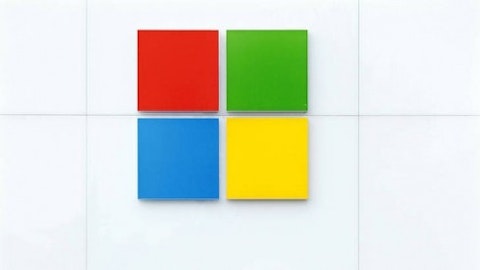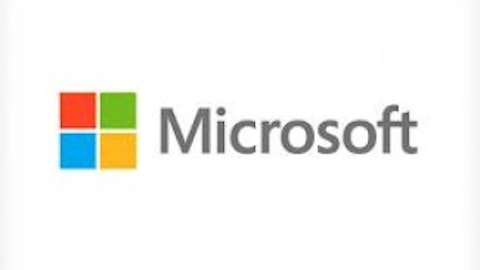In business, as in life, the only constant is change. Major trends enacted by Apple Inc. (NASDAQ:AAPL), Google Inc (NASDAQ:GOOG), and others in the tech industry represent a serious threat to Microsoft Corporation (NASDAQ:MSFT)‘s business model.
Mobile revolution
Microsoft Corporation (NASDAQ:MSFT) has been mostly a software company, selling Windows and Office to different hardware manufacturers or end customers; this meant that the company was in a very convenient strategic position. While hardware was a tough business with little room for differentiation and low profit margins, software was different.
Windows and Office were remarkably dominant in the times of the booming PC market and Microsoft Corporation (NASDAQ:MSFT) benefited from strong network effects. Selling software on a large scale can be tremendously profitable too; once code is written it can be sold to another customer for a marginal cost. The company had the best of both worlds: a dominant market share and big fat profit margins.

As mobile expanded to emerging markets, however, costs considerations became increasingly more important to the average consumer and Google Inc (NASDAQ:GOOG) leveled the playing field by allowing manufacturers like Samsung and HTC to use its popular Android operating system for free.
Both in smartphones and tablets Apple Inc. (NASDAQ:AAPL) is still the high end leader, but competitors have reduced the technological gap and lower-priced Android devices have been rapidly gaining market share over the last quarters.
Microsoft Corporation (NASDAQ:MSFT), on the other hand, has achieved lackluster results in mobile so far: According to IDC, the Windows Phone platform had a market share of 3.7% during the second quarter of 2013, well behind Apple Inc. (NASDAQ:AAPL)’s iOS with 13.2% and Google Inc (NASDAQ:GOOG)’s Android with 79.3%. The company also had to take a $900 million inventory writedown in the last quarter due to disappointing sales of its Surface tablets.
Declining PC market
According to Gartner, PC shipments declined by 10.9% in the second quarter of 2013, this was the fifth consecutive quarter of declining shipments, the longest period of falling PC shipments in the industry’s history. Tablets are replacing PCs, and there is no end in sight for that trend.
When it comes to business users and other tasks that require heavy computing power, a PC is still irreplaceable. However, if you are watching videos, reading, engaging in social networks, or checking emails, there is really no need for a PC and a tablet provides a superior experience.
The distinction between PCs, tablets, and smartphones is becoming increasingly outdated in a time in which the rise of cloud computing means that everything is stored online and easily accessible from different devices at any place at any time.
Google Inc (NASDAQ:GOOG)’s Android is commoditizing operating systems in the mobile era, and this does not bode well for Microsoft Corporation (NASDAQ:MSFT) and its Windows business.
Office under attack
On September 10, when Apple Inc. (NASDAQ:AAPL) presented its new iPhone 5S and iPhone 5C, Tim Cook also announced that the company will be making its iWork productivity suite freely available to all buyers of a new iPhone or iPad.
The company has also recently launched a beta version of iWork in the cloud which can be used for free on any PC through a browser. Apple Inc. (NASDAQ:AAPL) still charges for the Mac version of its iWork suite, but it makes sense to assume it will also be free once the free web version becomes mainstream.
Google Inc (NASDAQ:GOOG)’s cloud-based productivity suite, Google Drive, is freely available for iOS and Android mobile devices as well as PCs.
iWork and Google Drive may be limited substitutes for Microsoft Corporation (NASDAQ:MSFT) Office, but they will likely become better over time, and they are free. Even if they won’t completely replace Office in the midterm, they do pose a considerable threat, especially when it comes to consumers with basic productivity needs.
Bottom line
Google Inc (NASDAQ:GOOG) makes Android and Google Drive available for free with the intention of creating a huge platform and monetizing it via advertising in the long term. Apple Inc. (NASDAQ:AAPL), on the other hand, integrates iOS into its own hardware to build a single high quality product, and the free iWorks suite is intended at attracting more customers to the platform and selling more devices.
Microsoft’s Windows and Office as stand-alone software products are under heavy pressure from both competitors, and major industry trends like mobile and cloud computing represent a serious challenge to the company and its business model.
Microsoft Corporation (NASDAQ:MSFT) recognizes the threat, hence the change in CEO and the acquisition Nokia’s smartphone business. Acknowledging the problem is a good first step, but it’s hardly enough to guarantee a successful transition.
The article How Apple and Google Are Killing Microsoft originally appeared on Fool.com and is written by Andres Cardenal.
Andres Cardenal owns shares of Apple and Google. The Motley Fool recommends Apple and Google. The Motley Fool owns shares of Apple, Google, and Microsoft.
Copyright © 1995 – 2013 The Motley Fool, LLC. All rights reserved. The Motley Fool has a disclosure policy.





